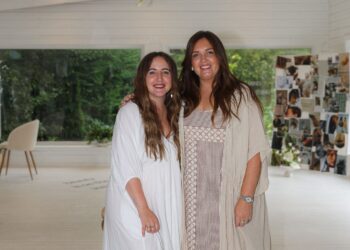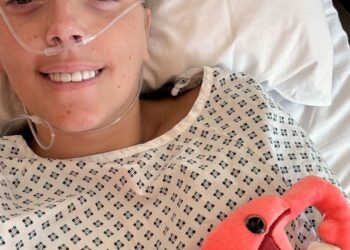Our health series shines a light on Obsessive Compulsive Disorder in the May|June issue
In the new issue of Irish Country Magazine, our award-nominated health series The Invisible Struggle spotlights OCD, and breaks down its harmful stereotypes and stigmas, as well as sharing expert advice in how to treat this debilitating condition. In the feature, Niamh Devereux speaks with three Irish women who live with OCD, who share their stories. These were condensed for the magazine: here are their accounts in full – trigger warning, they may be upsetting for some to read. We will continue to share more Voices of OCD over the next few weeks.
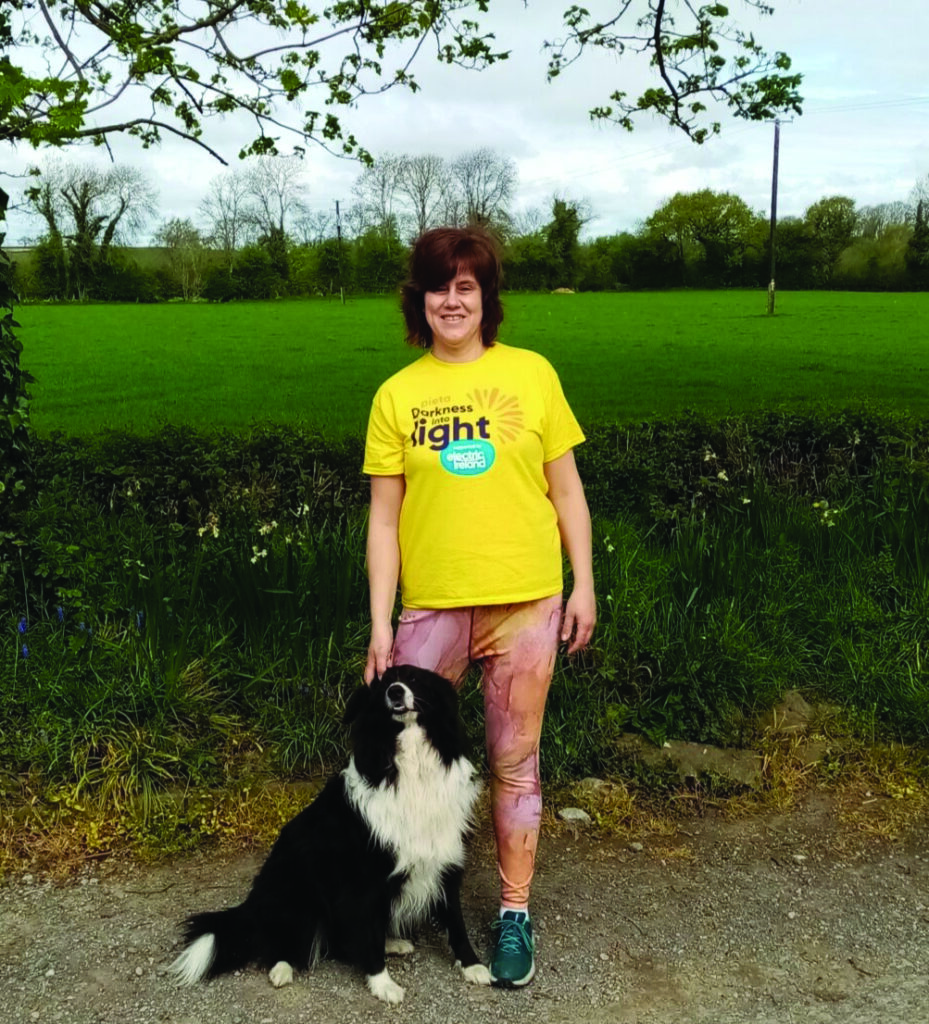
Brigitta Fitzpatrick, Co Offaly
I have been living with anxiety since I was a young child but my earliest memory of experiencing symptoms of OCD in particular takes me back to my teenage years. I was about seventeen when we went to the cinema with my school to watch the movie Schindler’s List. Watching the story playing out on the big screen had a profound effect on me – unfortunately not in a positive way. The following two years were a surreal period in my life as I found myself completely overwhelmed, obsessing about thoughts of the Holocaust, of images of Jews marching to the gas chambers or being shot. These thoughts kept going around my mind without a break, which caused a great deal of anxiety in me on a daily basis to the point where I was feeling physically sick thinking about the horrors of the Holocaust. This was the first time in my life when I experienced obsessive thoughts, although at the time I didn’t realize that this was OCD.
My type of OCD is called ‘Pure O’ or ‘purely obsessional’, which means that the OCD plays out only at the level of thought, with no compulsion of a physical ritual following, unlike in manifestations of OCD, such as checking, washing hands, and so on. The theme of my Pure O is ‘harm and suicide’. This means that I experience obsessive intrusive thoughts of committing suicide or harming my loved ones, thoughts of losing control and killing my family. These thoughts which primarily present themselves as images make me feel highly anxious and scared. As a result, I often experience a pressure in my chest area, palpitations and shortness of breath.
In general, I would like people to know that those living with OCD are intelligent and sensitive people who can be absolutely crippled under the weight of this tormenting condition. The World Health Organisation ranks OCD as one of the ten most disabling conditions, in terms of lost earnings and diminished quality of life. OCD is not a quirky little personality trait like that displayed by the charming Detective Poirot in Agatha Christie’s novels, it is an extremely debilitating mental health condition. It makes you feel completely cut off and isolated from reality, where you’re caught in a vicious cycle of obsessions and compulsions, while feeling terrified and highly anxious. As for the specific type of ‘Harm OCD’, I would like everyone who reads this to know that sufferers of this condition are some of the most gentle and sensitive people out there, who hate any form of violence, that is exactly why obsessive intrusive thoughts of harm are so scary to them.
There are countless particularly challenging moments that I can recall. One of them is holding my newborn baby in my arms and being tormented by the never-ending flashes of images of me killing her, while feeling absolute dread and terror at the same time. Another one is being alone in the house and feeling the urge to put my hands around my neck and choke myself until I’m dead, while feeling scared out of my mind at the thought. Yet another memory is me endlessly walking the corridors of the local psychiatric unit (where I spent 6 weeks at the end of 2023), while praying to God to have mercy on me and kill me with a heart attack or a stroke there on the spot because I simply couldn’t take any more of the torment.
I sought help a few days after I started experiencing obsessive thoughts accompanied by high levels of anxiety for the first time. This was back in 2006, having just found out that I was pregnant with my first child. I started seeing a cognitive behavioural psychologist, who after I’d described to her my symptoms, wondering if I was going crazy, told me in a matter-of-fact way that what I was experiencing was in fact a very common condition. She diagnosed me with obsessive-compulsive disorder. I remember being surprised at the diagnosis as I had only heard of OCD manifesting as extreme behaviours of checking and hygiene and never of it simply playing out as thoughts. I felt relief hearing that I wasn’t going crazy, that I shared this condition with so many around the world and that this was a treatable condition.
The “golden standard” of treatment for OCD is ERP (Exposure and Response Prevention), which is a type of cognitive behavioural therapy. During this type of treatment you are asked to confront your obsessive thoughts without engaging in compulsive behaviour, which over time reduces anxiety. I did ERP back when I started working with my CBT therapist in 2006, however I only remember doing it for a couple of weeks as I’d realized that the treatment was making me feel a whole lot worse. For my ERP “homework” I had been asked to write “scripts”, describing my obsessive thoughts of stabbing a knife into my pregnant belly or choking my husband in his sleep in great detail then to record these scripts on a tape and to listen back to these recordings several times during the day. Following each of these exposure sessions I had to record my level of anxiety. I remember doing exactly as I’d been asked while feeling scared out of my mind. It didn’t matter how many times I listened to these scripts, not only did my anxiety levels not reduce but they were higher than ever before and that’s when I quit this kind of therapy.
Shortly afterwards I started seeing a psychiatrist who prescribed me some medication, including an antidepressant as by that point I had fallen into deep depression. I have been on medication ever since, that is for the last 19 years and they have been a real lifeline for me. Having said that, over the years I’ve realized that medication could only get me so far and that there were no magic pills that would cure me of OCD. They helped me greatly when I was at my lowest and for that I’m really grateful but after a while I realized that I had to find the courage to face OCD, however scary that seemed to me at the time. There was no way around it, the only way was through it.
My most recent mental health crisis during which – after years of feeling okay – once again I found myself back in the throws of those familiar OCD thoughts, which made me seriously contemplate suicide. It was this “dark night of the soul” that served as a catalyst for me to look for a real solution. And my journey led me to mindfulness. It had taken several months of increased dosages of medication, as well as me pushing myself to find a job after years of being a housewife and in general pushing myself to keep going even in my most anxious moments that I finally started to feel some relief from the symptoms. This is when I found an online mindfulness course for beginners and today I’m extremely proud to say that I have been practising mindfulness on a daily basis for the last ten months and feeling better, stronger and more hopeful by the day. These days I’m listening to a lot of Eckhart Tolle’s practical teachings and I find myself developing more and more awareness and presence in my life.
My advice for those living with OCD or who suspect they may have OCD: most importantly, know that you are not alone and that there is always help available. OCD Ireland runs support groups (online and in-person) where you can connect with others living with OCD and share experiences in a loving, supportive environment. Exposure Prevention Therapy has proved successful at treating difficult cases of OCD, however it is not the only option for healing. Another word of advice: don’t feel bad about taking medication – it can be very helpful in getting you to a point where you feel stronger and more hopeful about the way ahead. Very important also is to know that pain and resistance equals suffering (it’s not my line, heard it from a mindfulness teacher!). Do not try to run away from, suppress or get rid of those uncomfortable intrusive thoughts as that will only lead to more suffering. Be okay with not feeling okay, be okay with feeling anxious and not knowing how you’ll get out of this.
I must mention mindful breathing as one of the most powerful tools on my healing journey. It can really make a huge difference in anxiety levels. I personally remember several occasions when my OCD was making me feel extremely anxious and after doing a few minutes of mindful breathing – to my great surprise – I was feeling relaxed and even drowsy! Finally, another equally powerful tool is getting outside and moving your body. It’s extremely important to take energy away from the mind by bringing yourself back to your body. I personally find as soon as I get out into the fresh air I feel a lot less anxious. My favourite exercise is walking and feeling my muscles working while taking in the scenery around me. But any type of exercise will do: running, swimming, lifting weights or even dancing to your favourite music!
For a long time I thought that OCD was my greatest enemy, a condition that I had to wrestle to the ground in order to be able to live my life to the full. Now, having been practising mindfulness for nearly a year, and focusing on bringing more presence into my daily life, I realize that had I not gone through of all the challenges of OCD, I would not have been pushed to the point where I clearly saw what changes I needed to introduce into my daily life. Now whenever I experience an OCD episode (yes, I still have those and may always will), I say to myself,” Ok this is an opportunity to practice acceptance of what is”, I acknowledge that this is a moment of anxiety, even bring my attention to the physical sensations holding my hands over my heart and breathing into the discomfort. And you know what? The anxious sensations slowly subside. Acceptance is the key.
Brigitta has asked that if anyone would like to get into contact with her, please email ndevereux@irishcountrymagazine.ie
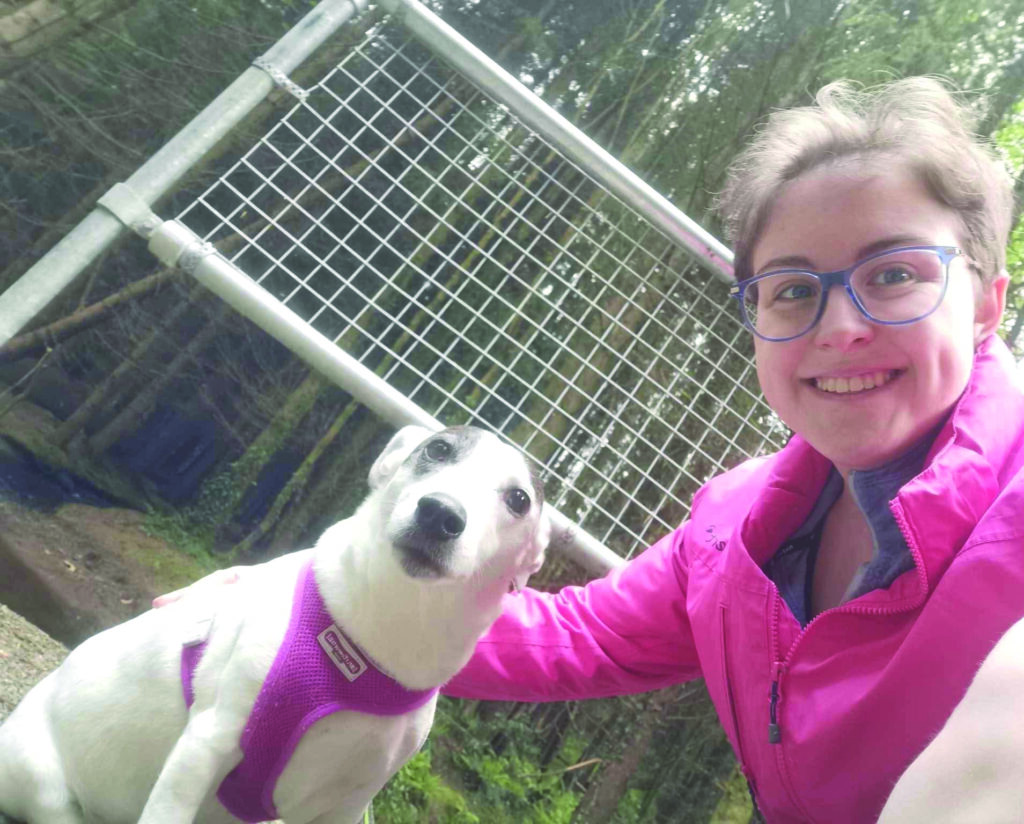
Kate Quinn, Co Wexford
My earliest memory of experiencing OCD symptoms dates back to the swine flu period, when we started bringing wash bags to school. I felt significant anxiety about touching taps and towels and have a vague recollection of needing to count to specific numbers. This memory is a bit hazy, and it seems my OCD symptoms subsided for a few years. However, when my gran fell ill and sadly passed away in 2016, that’s when the strongest memories of OCD symptoms resurfaced and persisted.
My OCD presents itself through contamination fears, such as a fear of germs, and checking compulsions, like repeatedly ensuring doors are locked. OCD is not a “cute acronym” for liking neatness; it is a debilitating issue that can impact daily life which requires empathy and acceptance. Professional help, such as therapy and medication, can be beneficial but may not work for everyone, but societal acceptance plays a significant role in well-being. By fostering awareness and open conversations about mental health, we can break down misconceptions and promote a more compassionate approach to supporting those with OCD.
Obsessive-Compulsive Disorder (OCD) is a condition marked by persistent, intrusive thoughts and repetitive behaviours. Every minute can differ drastically; one moment might be calm, while the next is tumultuous, akin to having a loud, relentless bully in my mind. The more attention given to these thoughts, the more doubt they sow.
Consider the example of cleaning a table: once the task is finished, an intrusive thought might persistently whisper, “You didn’t do that correctly.” Even after seeking reassurance, the lingering doubt often compels repeated cleaning, creating a cycle of uncertainty and anxiety about the task’s completion. This pattern can permeate various aspects of daily life, intensifying the debilitating nature of OCD. It’s like having a relentless voice in your mind, amplifying the anxiety and making it difficult to find peace.
OCD can also spark anxiety through seemingly minor actions, such as worrying about the ripple effects of germs spreading from one person to another if I haven’t cleaned something right . The sensation of invisible dirt can be overwhelming, prompting thorough cleaning rituals to alleviate the discomfort. Certain environments and emotions can exacerbate OCD symptoms. For instance, visiting a doctor can trigger stress due to perceived dirtiness and uncertainty about the visit’s outcome. This may lead to compulsive cleaning or a heightened sense of feeling dirty. Similarly, exams or upcoming events, like work meetings, can heighten anxiety.
Public places, particularly toilets, can cause significant stress due to narrow cubicles, taps that don’t stay down, and inaccessible bins. These elements can be anxiety-inducing, especially as I observe people mindlessly touching dirty surfaces. Even fictional scenarios on TV, such as characters leaning on public bathroom sinks, can be unsettling. Sometimes OCD can come into dreams so there really is no break from it!
Bedtime can sometimes be challenging due to worries about appliances, doors, and switches. On better nights, reassurance is enough, but on tougher nights, taking a video with my phone helps manage the anxiety. Interestingly, OCD can change its focus. When I shared my mom’s car, I experienced anxiety about the handbrake and locks, requiring video confirmation when leaving the car. However, when I got my own car, these compulsions eased, highlighting the unpredictable nature of OCD and how obsessions can shift and latch onto new concerns.
Describing the experience of living with OCD can be challenging because so many thoughts and feelings are constantly at play. It’s hard to articulate the complexity of emotions involved, especially as it can be hard to understand when you don’t have OCD, given that OCD brains are generally wired differently.
But if you can imagine a first-person shooter game where the player is always scanning for threats; living with OCD is similar, as it involves continuously being on the lookout for potential triggers and overthinking even the smallest details.
Lastly, a significant challenge is the misunderstanding from those without OCD. Social interactions can be daunting due to fear of judgment or unhelpful comments. The stigma can lead to trying to hide compulsive behaviours rather than openly discussing them. Having a supportive space to express anxieties could greatly aid in managing OCD. Understanding these experiences is crucial for fostering empathy and support for those living with OCD. By recognizing the challenges and complexities of the condition, we can promote a more informed and compassionate dialogue around mental health.
A recent example of these challenges is when I recently attended a show at the Gaiety Theatre, forgetting that their cramped toilets are on my personal “block list” due to the stress they induce. Navigating the tight space, my jeans brushed against the toilet, triggering a panic response.
Meeting a college friend outside of school for the first time, a massive anxiety attack struck just before she arrived. Despite the situation, she showed no judgment and even offered me hand sanitizer when she saw my distress. Throughout the day, I felt unclean, compulsively wiping seats wherever I went, and was relieved to change clothes once I got home. Even amidst my struggle, my friend remained unfazed. Though too embarrassed to fully discuss my OCD episode, I thanked her, and she saw her actions as a small gesture. To me, it was monumental – her lack of judgment and abundance of empathy were truly impactful and rare. Designers should ensure public spaces accommodate diverse needs. Tight spaces, splashing sinks, and stiff doors or locks pose challenges for those with OCD and, when combined with rheumatoid arthritis, make navigation stressful. These elements can be difficult to manage, adding to discomfort. Accessible design is essential for comfortable movement in public areas. Prioritizing inclusivity makes spaces welcoming for everyone.
The transition from the end of school to college was particularly challenging for me, with numerous factors making it difficult to cope. Another tough period was a bad breakup, which exacerbated my anxiety and OCD. However, to anyone struggling, remember that a period of peace will come; just keep holding on. Journal, talk, and do whatever you can to find moments of calm amidst the storm in your mind.
Consider examining other aspects of your life, as struggling to cope or experiencing a low mood can impact and manifest as worsening OCD symptoms. Similarly, factors like sleep, diet, and exercise play a significant role in influencing key emotions.
For years, I suspected I might have OCD, but it was my therapist who motivated me to seek a formal diagnosis. In 2023, I spoke with my doctor about it. It was challenging; I was concerned about being perceived negatively after opening up. However, my fears were unfounded. My doctor, Mark, remained empathetic, patient, and understanding. This experience demonstrated that there was no reason to fear obtaining a diagnosis; it was a step that ultimately improved my situation.
Receiving the diagnosis was affirming; it allowed me to acknowledge my condition openly. I joined a support group, which led me to a community of people who truly understand what living with OCD is like. We share laughs and insights, and it’s a rare joy to connect deeply with people I didn’t know well initially. OCD Ireland has been instrumental in organizing events and bringing our attention to activities that foster connection and understanding.
Having this supportive network has been invaluable, providing both camaraderie and a sense of belonging that is crucial for managing the challenges of OCD. One has to find a way to live it and in a way that is manageable. There are various strategies people with OCD can adopt, and it’s crucial for each person to find what works best for them. I am still discovering mine, but for now:
I try to focus on keeping my space clean and addressing anything that might trigger OCD-related stress. I also keep track of events that can exacerbate my symptoms, like my monthly cycle or exams, and ensure everything is organized to minimize stress as much as possible. Carrying antibacterial supplies and other calming items helps me stay composed when I’m out and about. Additionally, I try to prevent spirals by avoiding using my phone to record things for reassurance. These strategies are easier said than done, but they can make a difference in managing OCD. It’s about finding a balance and creating a routine that supports well-being.
My advice for those who suspect they have OCD is:
Seek a Diagnosis: Get a formal diagnosis. This will confirm whether you have OCD and help you understand your condition better.
Identify Your Type: OCD can manifest in various forms, so it’s important to identify which type best describes your experiences. This can guide your approach to managing it.
Understand Your Triggers: Start recognizing what triggers your OCD symptoms and explore ways to alleviate these stresses. This might involve therapy, medication, or engaging in mindful activities like colouring. Joining a support group can also be beneficial.
Acceptance and Naming: Embrace OCD as a part of your life. Assigning a name to this new “companion” can help you recognize its presence without allowing it to completely define you. Additionally, exploring articles or podcasts about OCD can be beneficial in finding relatability and understanding.
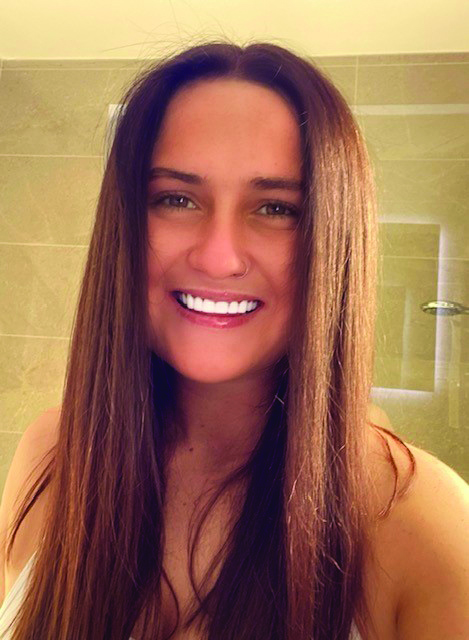
Lauren Martin, Co Kilkenny
My first memory I remember clearly is how ill I got with my first OCD spiral at the age of six. I believe I had my first breakdown at six, but I was born with OCD. My mam shows signs in the way everyone would know OCD; she cleans obsessively and checks things. I am the least organised, messiest person. OCD, for me, has always affected me mostly in my head. I remember telling my mam and dad I’m having thoughts but they’re not me and they’re scaring me. This would be consistent throughout my life: ‘scary thoughts’. They can be about anything, but the ones I felt most shame about were harm thoughts or vulgar thoughts, which I couldn’t understand why I was having. I had constant stomach aches from guilt. I was taken to the doctor and he said I’d grow out of it. The overall feeling was that I made my mam and dad sad and I needed to stop this. I went through my whole childhood and teens not telling a soul and believing I was an awful person. I was terrified of the thoughts, which could also make me believe things that were untrue. Things like, I have HIV and I’ll give it to everyone I love and they’ll die, or I have a aneurysm and will die. I was terrified the thoughts were torturing me but I felt so alone in it.
It was the loneliest feeling in the world . I was a child dealing with a very adult problem and I felt shamed into keeping it to myself. OCD is known as the ‘torturing disorder’ – as an adult I find it debilitating. I don’t know how I survived as a child. I believed I was evil because of the thoughts, and became a people pleaser to make up for it . If anyone knew my thoughts they would hate me, I thought. I obsessively prayed and blessed myself in hopes of saving my soul.
OCD was prominent in my childhood and early teens but no one would know. I hid it well unless you seen me perform a compulsion like praying or tapping in sequence. My OCD presents in thoughts. Every person has intrusive thoughts; like what if I pushed a person in front of this train etc. However, a person with OCD will obsess on it; believe that it means something. For me, OCD thoughts set off my fight or flight. I used to avoid anything or anyone who could be a trigger. My world got smaller and smaller until I barely spoke to my own parents . I was so affected by these thoughts. I’d never want to hurt anyone in any way, so I found these thoughts devastating.
I completely fell apart at 19. People used to be my distraction from the thoughts. I was very social and had a lot of friends. However, when the thoughts started to centre around other people, mainly harm OCD, I fell apart. I became afraid to leave my house and wouldn’t even speak to my family. I was housebound for two years. My 29th year was the hardest of my life. After an accident, I had many breakdowns that year. One week, I didn’t sleep for seven days, I feared the thoughts so badly. My biggest breakdown came after a night out. I’d been drinking to self medicate and it caught up to me and I ended up in the biggest spiral of my life and tried to take my life.
I cried after reading the book ‘Mad Girl’. I’d credit Bryony Gordon with saving my life. To read someone having been through what had been torturing me my whole life was such a relief. It felt like I found my answers finally. I wasn’t evil, I had a disorder. Looking into Bryony after gave me so much hope. She was not only surviving, she was living an amazing life . She was married with a kid and had an amazing career. There was hope for me. However, in my experience, the mental health services in Ireland are not fit for purpose. I could not get them to give me a diagnosis. It took another trip to my GP where I broke down saying If I don’t get a OCD diagnosis and help, I’ll die. He sent me to a private psychiatrist who was 500 euro who was great and diagnosed me. I feel blessed this was an option for me with the help of my parents. It’s not for a lot of people.
I think life for me, after my diagnosis, felt better; I had answers. However, there was very little for me in terms of help. The mental health services did not seem to know what to do with me. It took a suicide attempt and me finding help with OCD Ireland. I received Exposure and Response Prevention Therapy from Aaron Gibson. That has really helped me realise my thoughts aren’t me. They are intrusive and unwanted. OCD thoughts are ego-dystonic, they go against the persons values, it’s why they find them so upsetting.
I want people to know that OCD is not the cleaning disease. It comes in my forms and it tortures the sufferer. A person with OCD is 10 times more likely to kill themselves then the average person. Intrusive thoughts are not impulsive thoughts; they are unwanted thoughts. The person doesn’t want to have them as they go against their values . I think the stigma attached to OCD is why so many people suffer in silence because thoughts can be on taboo subjects . I’d stress the importance of breaking the stigma.
I’d tell people if possible to find a psychologist and therapist who specialises in OCD. It’s a complex metal illness that needs expert help. I’d strongly encourage anyone suffering to please get help. I know how lonely and scary it is to face it alone. It’s why I wanted to raise awareness I’ve been emailing publications for a year trying to raise awareness so no one ever feels like I did.
If I could go back to my younger self, I’d tell her she’s not bad. She has a mental illness. Her thoughts don’t mean anything about her. I’d just hug her because she’s so scared and hates herself for something she can’t control.
For advice, help and support, visit ocdireland.com. The new issue of Irish Country Magazine is out now in shops nationwide.


